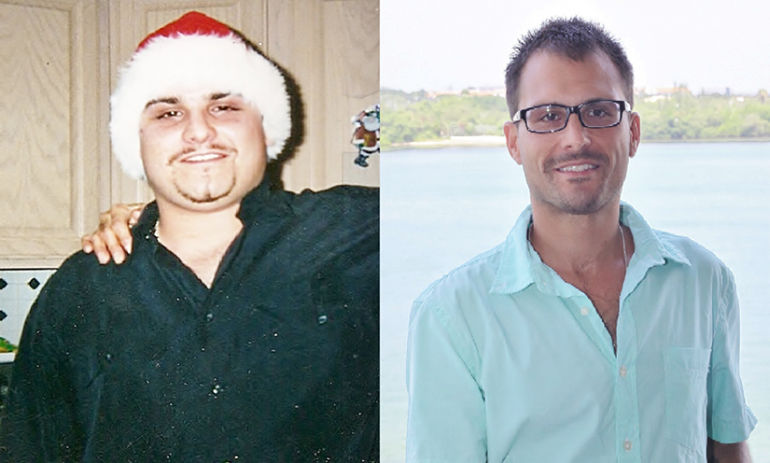Lose Weight > Common Sense To Lose Weight > Common Sense Article > Do You Have An Undiagnosed Food Sensitivity?
Do You Have An Undiagnosed Food Sensitivity?
It's not just calories in, calories out. It's the interaction of our hormones, immune system, neurotransmitters, environment, cultural beliefs, emotions, and genes.
Food sensitivities trigger a hormonal, immune and neurotransmitter response, which can make you fat and stop you from losing fat.
So what is a food sensitivity?
Let's start with what it isn't.
It's not an allergy, which produces a severe (and immediate) response, such as hives or anaphylactic shock. Approximately 2% of the population has a food allergy, and the most common offenders are peanuts and shellfish.
It's not a digestive enzyme deficiency, such as lactose intolerance, nor is it a protease enzyme deficiency that can impair the breakdown of gluten and casein. About 20% of the population has food intolerances due to digestive enzyme deficiencies.
A food sensitivity is an immune response to undigested protein molecules which erroneously enter the blood stream or lymphatic system. Gluten, casein and whey are very common food sensitivities. The body correctly perceives the food to be foreign and mounts a response to destroy and remove the offending food, much like it would for a bacteria or a virus.
This immune response triggers pro-inflammatory cytokines to neutralize the food, but in the process blocks the insulin receptors and stops glucose from entering the cells to be used as energy. Instead, glucose is converted into fat and stored in the fat cells.
The result: you get fatter and have no energy.
But wait, it gets worse...
The cytokines use the "feel good" neurotransmitter, serotonin, to communicate with each other. Serotonin regulates appetite and cravings for carbohydrates. When serotonin is used by the immune system instead of being used as a neurotransmitter, you experience a serotonin deficit in the brain, which leads to cravings for carbohydrate-containing foods, typically gluten and dairy.
But just like a bad one-night stand, this will give you a momentary high and leave you feeling depleted and depressed and craving more of these foods, which are often your food sensitivities. (There's also a dopamine connection which makes you feel addicted to that food but that's for another blog post.)
In essence, what you crave is often what you are sensitive to.
When I was studying nutrition in London, I joked that I had a sensitivity to oats. They were my nemesis. If left to my own willpower, I'd snort, inject and cover myself in granola, oatmeal cookies and Aveeno oatmeal lotion. When I finally parted with the money for a food sensitivity test, turned out I was sensitive to oats… and gluten… and dairy… and a ton of other foods.
Here's the good news: these food sensitives are not for life. If you take them out fully for nine months, heal the gastrointestinal tract, add digestive enzymes and rebalance your micro-flora, you'll be able to eat these foods again. You'll lose weight in the process, regain your energy, improve your mood, and get rid of any nagging digestive symptoms. When you read "I lost 10 pounds in a week this is why. It's not the 'diet' per say, but the removal of the food sensitivities.
How do you identify your food sensitivities?
1. Scientific Approach: You've got $500 to burn and want to see it on paper. (Show me what my cytokines are doing to food!). In that case, use the Alcat test.
2. Yogic Approach: You'd rather spend $500 on rebalancing your chakras and realigning your energy fields? Then do yourself a favor and exclude the big ones, offenders, and dairy, for 9 months.
3. Addicts Approach: You know all those foods you're "addicted" to? Take them out for 9 months.
If this all seems too much, seek out the help of an experienced practitioner who can guide you with their expertise, create meal plans and devise the right treatment protocol for you. I reversed my food sensitivities and can now eat dairy and gluten. According to my test results, I can eat oats, too. However, fearful of winding up in a 12-step program for "oat junkies," I've declined any foods or cosmetics that contain oats.
Photo Credit: Shutterstock.com
Related Articles
-
Food Addiction: 7 Steps To Recovery
I am a food addict in recovery. And once an addict…alwa
-
4 Benefits Of Shedding Weight
There are diverse goodies waiting for yo
-
Weight Loss Diet
Your diet is the food and drinks that you consume on a daily basis. Wh
-
What To Do If I Cant Lose Weight
Youve dieted, youve exercised, and you f
-
Personal Training Pomona - The Benefit Of Good Carbs
Recently, there has been a lot of hype over the importance of carbohyd
-
5 things to do to get your motivation back
It happens to all of us - we fall of the wagon with exercise, lose
- DON'T MISS
- Lose Weight by Keeping a Diary
- Weight Loss and Diet Plan - Not Just For The Overweight
- Fast Wedding Weight Loss - How to Make It Happen
- How Safe Are Weight Loss Pills?
- Quick And Easy Weight Loss Guide
- Holiday Survival Tips for Not-Over-Eating
- Lose A Pound A Day – You’ve Got To Be Joking – A Better Way To Lose Weight
- Natural Weight Loss Programs Tips To Reduce Weight
- Scents that Boost Weight Loss
- Close Kept Secrets To Weight Loss Lesson 13




